Photos by the author and courtesy Don Ricardo and Scott Grundfor
Rene Dreyfus, the great Pre-WWII Grand Prix champion and world class restaurateur, famously entitled his autobiography My Two Lives. The late Don Ricardo could have just as appropriately employed this same title for his most interesting life story. Although his background includes activities from semipro basketball to tool and die making, the Two Lives he is most known for are big band leader, and committed lifetime automobile racer and enthusiast. Ricardo was both for many of his 80 something years.
I visited his Pasadena, California home several times; a subtle-but-large Spanish rambler nestled in the hills just a few minutes from the Rose Bowl, and well equipped for car collecting. The main garage holding a dozen cars with ease, more in a pinch.
Ricardo was a musician since childhood (violin and drums) and is perhaps most noted as the leader of “Don Ricardo’s NBC Orchestra” on radio during the 1930s and ’40s. His group often appeared on the ticket with headline bands such as Tommy Dorsey, and was a popular fixture on the Hollywood and LA night club circuit. A trained machinist and tool and die maker, he applied for a job at the California Institute of Technology (CalTech) and worked there from 1940-1945; the technology he worked on was codenamed the Manhattan Project (the atomic bomb), although Ricardo pledged he didn’t know that at the time. He figured it was something to do with defense, but didn’t have any clue as to the ultimate magnitude of the project. After the war, Ricardo was caught up in America’s discovery of European sportscars and racing.
Although his collection was somewhat varied, he was foremost known as a Mercedes-Benz man. His brightest three-pointed stars are 300SL Gullwings; two 1955s, and a ’57. Amazingly Ricardo was the first owner of the earlier pair, and only the second caretaker of the ‘57. One was a rare (1 of 29) alloy bodied Gullwing, with which Don set class land speed records at the Bonneville Salt Flats; it also so saw competition action a quarter mile at a time in the stock sports car classes at the Winternationals drag races in nearby Pomona, California.
Ricardo’s Bonneville record run had every opportunity to end in star crossed disaster, this according to author photographer Dennis Adler: “What happens when the driver’s door pops open on a 300SL— at 150 mph? For everyone except Don Ricardo, that’s a purely hypothetical question. In 1967, during a record run at Bonneville, that’s exactly what happened to him. Vibration freed the latch, and as the dry salt bed flashed by in a hot, white glare, the door suddenly flew open with a deafening roar, its support struts held, and the entire left side of the gullwing Mercedes-Benz left the ground. Fate was with Ricardo that day. He managed to keep the car going straight, resisted the impulse to hit the brakes, and let the speed evaporate until the car dropped back onto all four wheels. What could have been a disaster was nothing more than only a modestly harrowing experience for the then 59-year-old Ricardo. He drove back to the staging area, tied the door closed with rope, and went back out to set an Class E, Grand Touring Sports Class record of 153.771 mph for a two-way trip through the measured mile.”
In spite of the rapid escalation of speed records during the ’60s and ’70s, Ricardo’s record stood for decades, only eclipsed in the late ’90s. It took some special mods to push even the lightweight Gullwing to its record speed. The engine was rebuilt and hopped up by soon legendary F1 and sportscar racing star Lothar Motsenbacher with an 0.080 inch overbore of the cylinders, and a custom crankshaft to increase the stroke, for a total of about 3.2 liters displacement. The ForgedTrue racing pistons amped the compression to 11.0:1, and California hot rod and racing cam grinders Harmon & Collins spec’d up a special high-lift stick, plus the entire engine was carefully balanced. The Bosch fuel injection and distributor were recalibrated, and the stock single exhaust hit the shop floor in favor of a thunderous sounding dual straight pipe set up. A 3.25:1 rear diff ratio, full underbody aluminum bellypans, Koni shocks, and special Firestone high-speed Bonneville tires, along with mandatory safety gear, and plenty of careful assembly and prep rounded out the job.
Other Mercedes and/or Benz cars in his stable included a 1911 Victoria Touring car, a stunning and historic gray and black 1923 Targa Florio 28/95 that now belongs to the Petersen Automotive Museum in Los Angeles, this car ran a massive naturally aspirated 7.2-liter single overhead camshaft inline six that was derived from an aero engine. This “short wheelbased” roadster was commissioned by the American Mercedes Company of New York City in 1923 and delivered in 1924; Ricardo acquired the car in 1986 and owned it the rest of his life.
Plus, a 1927 K sports roadster originally built for film idol Rudolph Valentino. More three-pointed stars were his 1928 SSK, a ’63 300SL Roadster, and a 1969 standard wheelbase 600 plus one of the factory-recreated three-wheeled 1886 Patentwagens. Ricardo’s tastes tended to run eclectic from there, up and down the classic and modern ranges. His 1938 Horch convertible coupe was a concours favorite, and his garage included a Lynx Jaguar D-Type replica, wonderful in its raw aluminum coachwork. His penchant for 300 SL coupes certainly set the tone other marques in his collection including a gullwinged DeLorean DMC-12 plus a Ford-powered Bricklin SV1, another gullwinged oddity. Plus the one and only Giannini Monza coupe – it was destined for series production in Italy in the early 1970s, but that mid-engined sports car project was scrapped when the all too similar Fiat X1/9 came to market. Add to all of this a Studebaker Avanti, a Model T, and a genuine article Jaguar D-Type, no surprise as Ricardo often raced Jaguars prior to getting big in to Mercedes-Benz in the mid-50s.
Ricardo’s home garage/shop complex, somewhat like many of his cars, had a patina all its own: not a well-polished and clinically sterile television or movie sound stage built to resemble a garage, but one with real tools hanging on the walls, along with posters and memorabilia tacked up wherever they’d fit. There were machine tools, battery chargers, spare parts, and cases of oil about. This was a man who used and enjoyed his cars, while sharing them with others. As noted, a friend and I used to spend an occasional Saturday or Sunday at Don’s place, helping him fettle his cars; airing up tires, charging batteries, checking fluids and a wax job here and there, the car chores that a guy in his 80s was having a tougher time keeping up with. He was always very generous with us; maybe asking us to do something specific here or there, but more often just diving in on the things we noticed or just felt like doing. Lunch was always on Don, and the story telling was epic.
In February of 1996, the San Gabriel Valley Section of the Mercedes-Benz Club of America hosted an open house / fund raising event at his home to help fund the production of a documentary film about Don’s legendary life. The program was called “Don Ricardo; the man, the music & the motorcars.” I was there as were a film crew and dozens of friends and MBCCA members; it was a lovely day, the music played, and Mr. Ricardo was in rare form as host and story teller. I cannot locate any evidence that the film was ever finished or produced, but I’d certainly like a copy if it ever is. Don Ricardo passed away August 15, 2001. His widow and three children quietly dispersed his car collection which found new homes all around the world.
Author Adler recounted this further story about his introduction to the finer points of racing and collecting Mercedes-Benz; “I was doing alright in my Jag until the 300SL came out and some local guy just wiped my tail off the map in nothing flat, so the first thing I did was go down and trade my British roadster in on a new 300SL. I had every option available, special paint, special tires, the works, [Rudge wheels] and that car cost me $9,300. People say they were selling for $5,600 back then, and I tell them, ‘not with all the options.’”
When he went to pick up the car at the dealership, it wasn’t to be seen.
“They told me it was on the way over, and all of a sudden there’s this big screech, and here comes a red 300SL tearing into the driveway with all four wheels locked up and sliding right into the service area. The driver’s door opens, and out jumps this young kid who worked for the dealer as a parts runner and driver. He says, ‘Is this your car?’ I nodded. ‘Boy, it’s a good one!’ he said. He didn’t hurt it any, just cleaned the tires off a little, but he was going like hell on that little side street. That was my introduction to the car and the kid – his name was [future F1 and sports car racing star] Richie Ginther.”
Matt Stone is a freelance journalist, author, broadcaster and former Editor at Motor Trend Classic magazine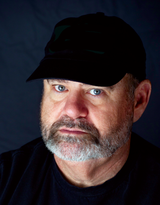

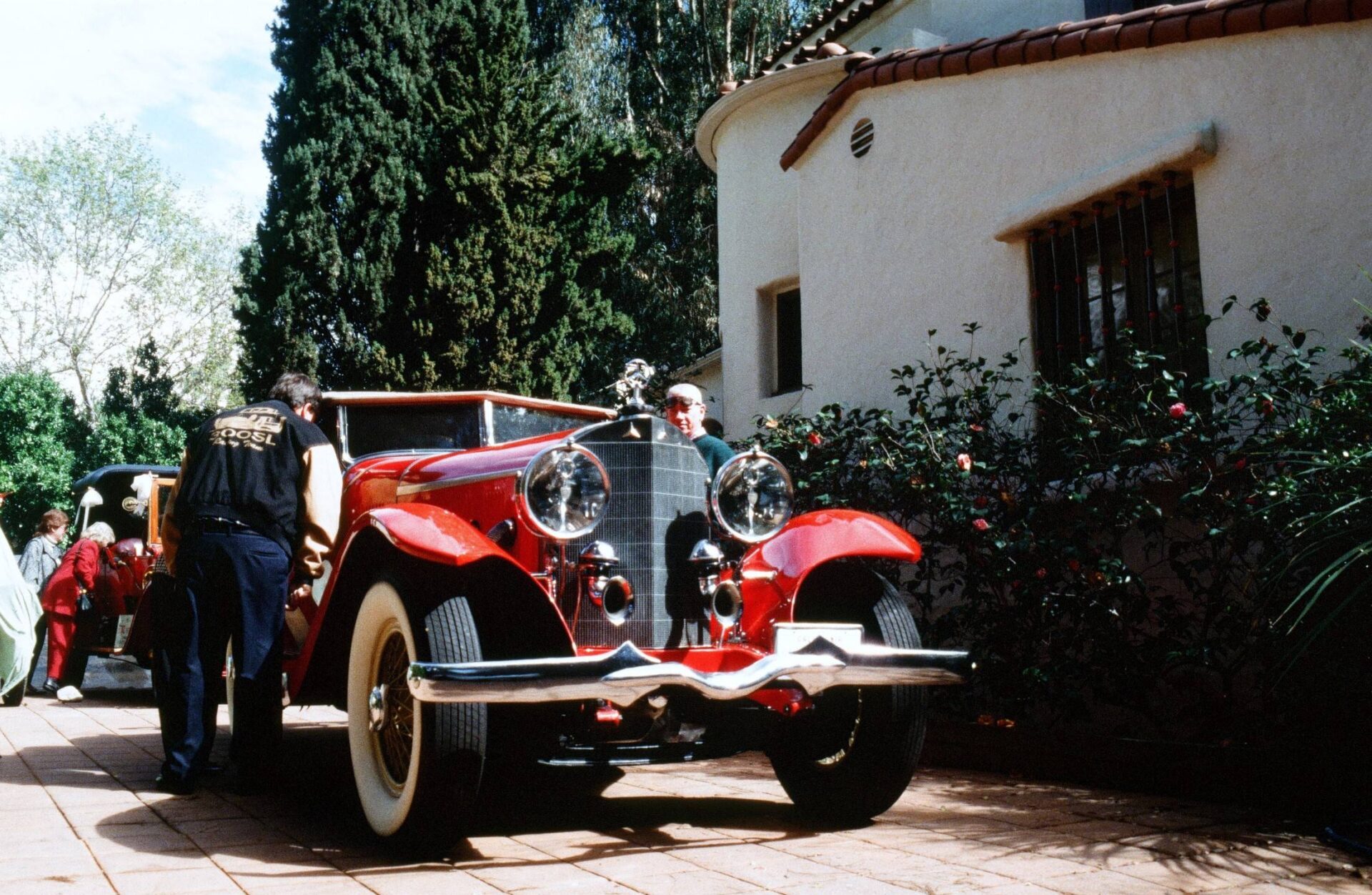
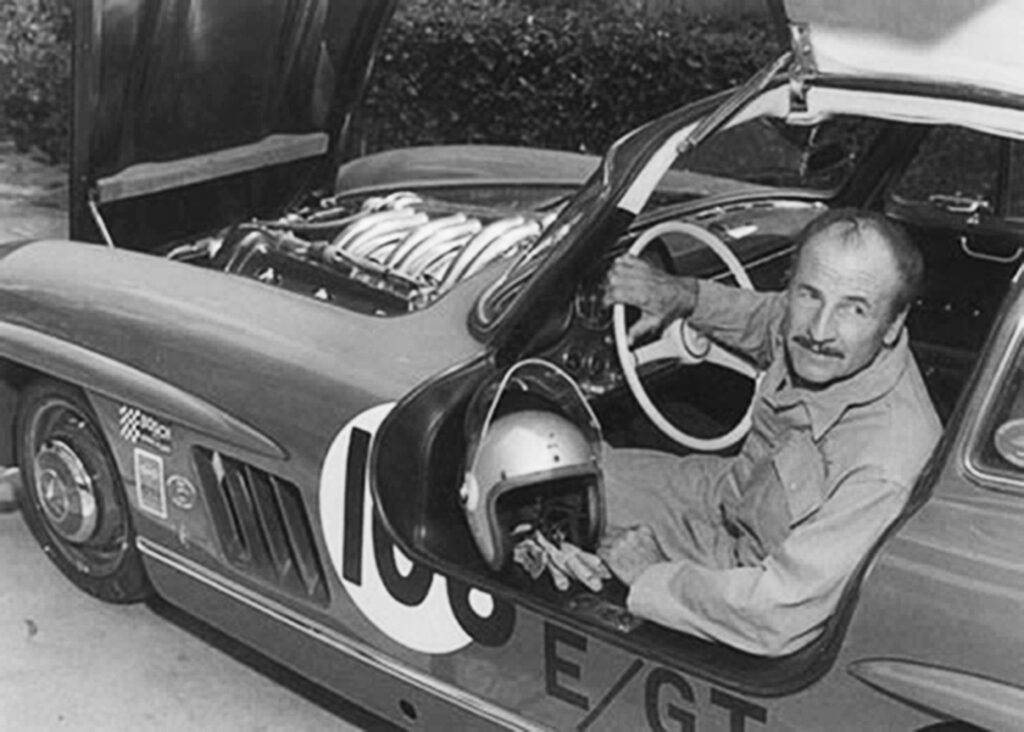
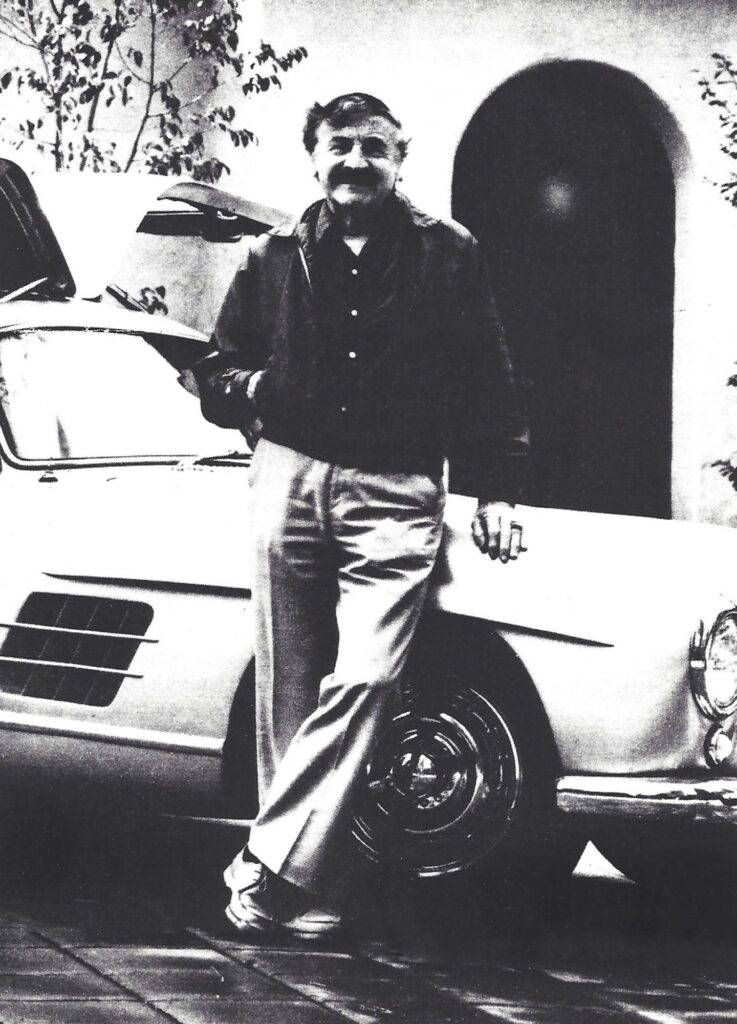
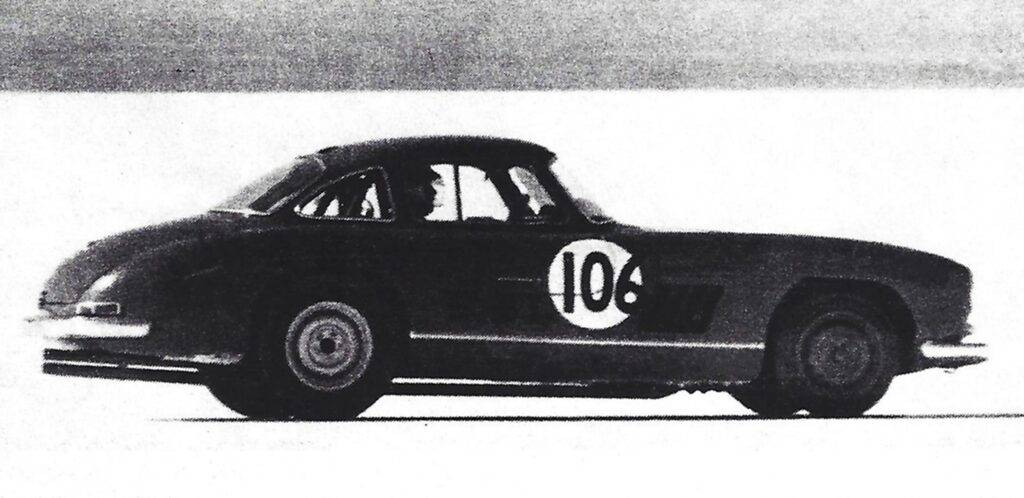
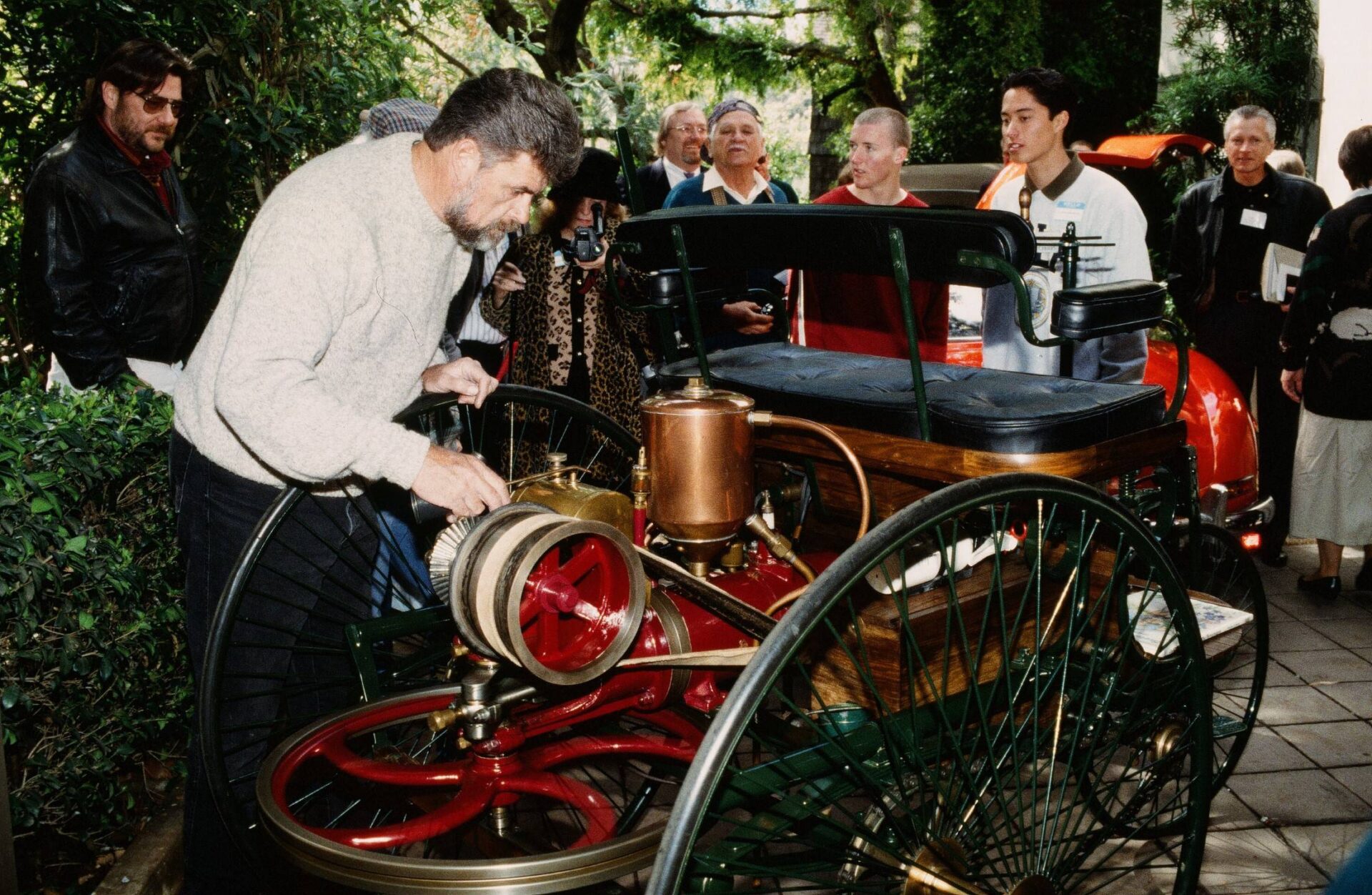
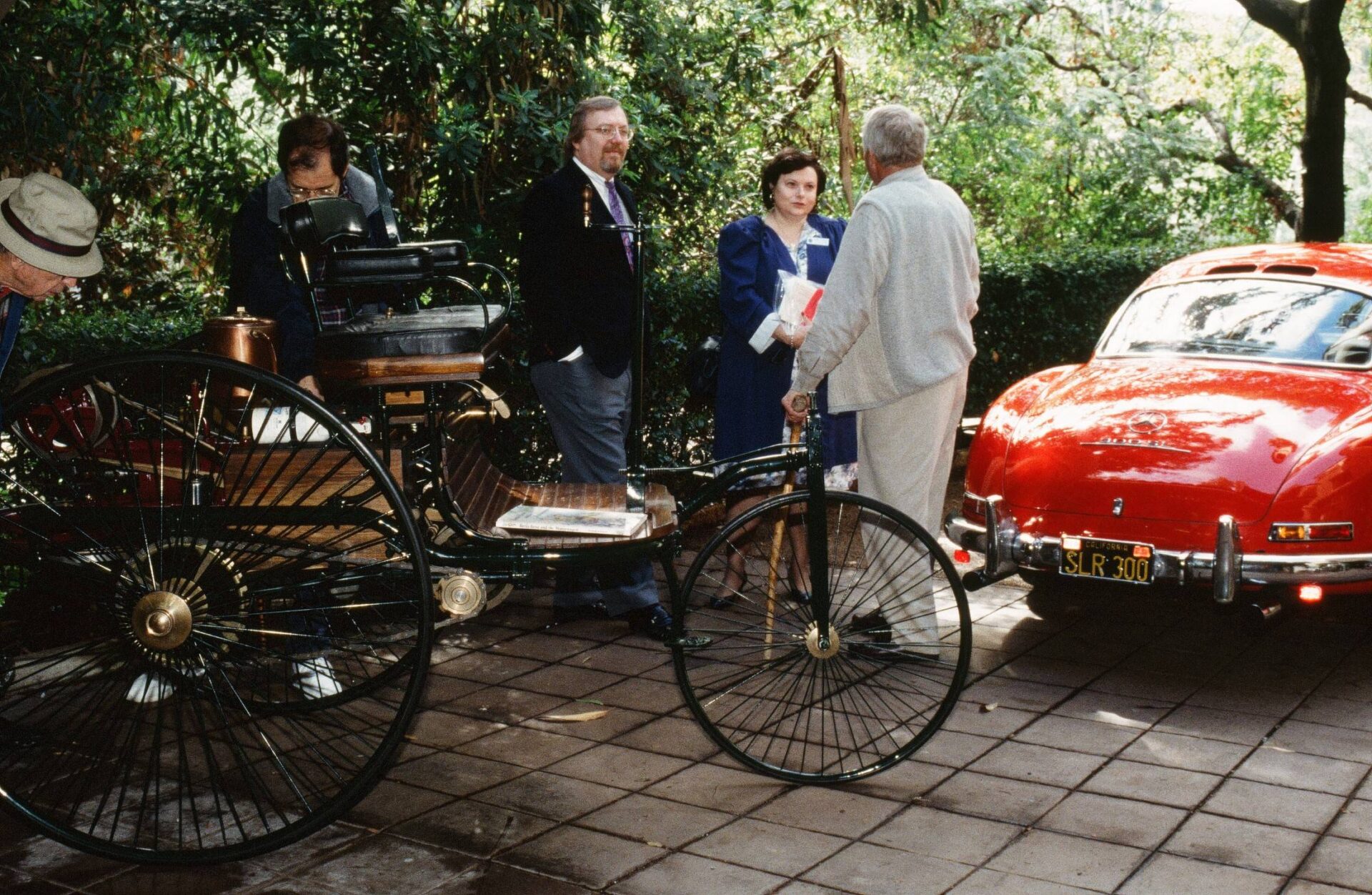
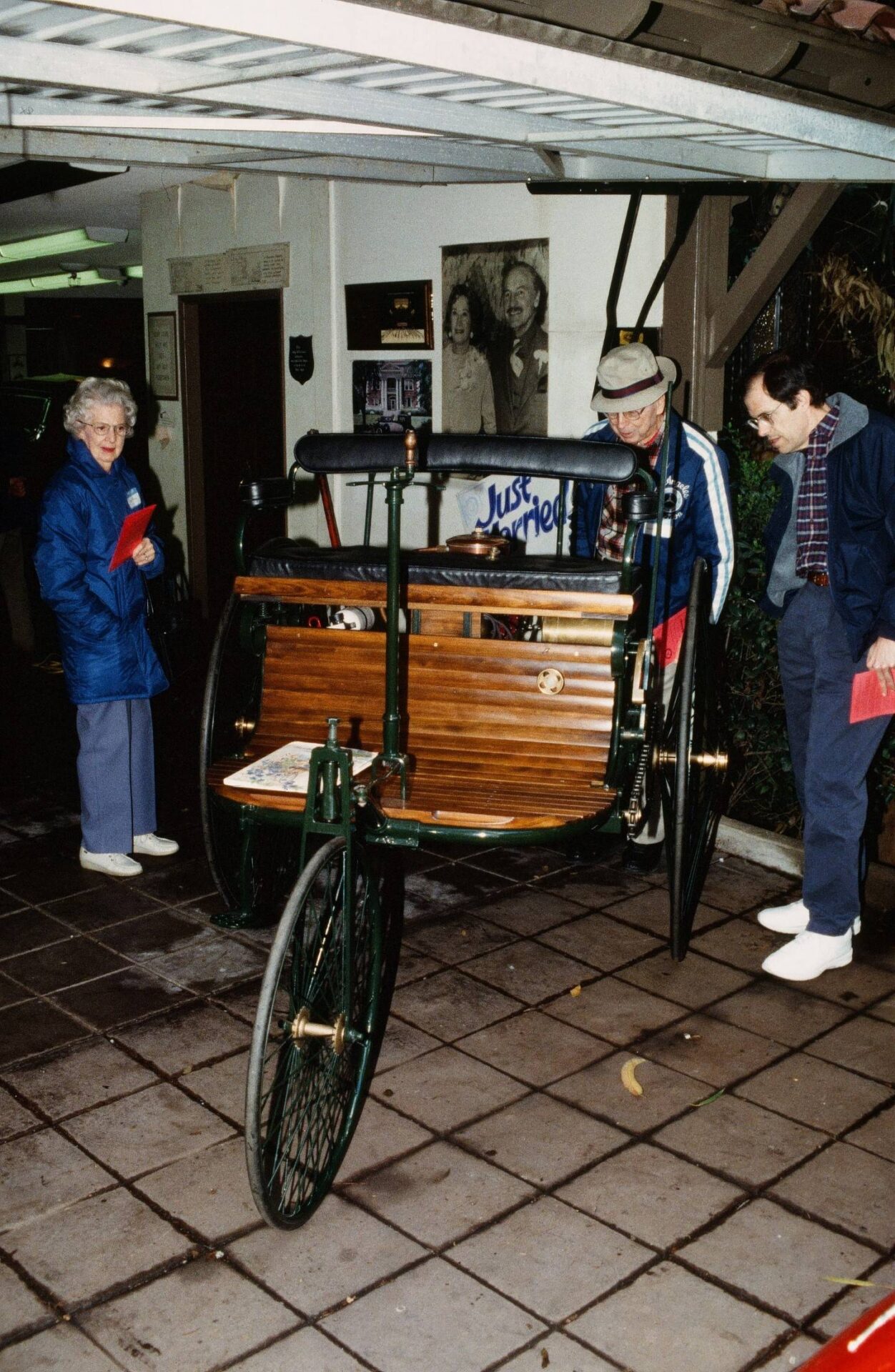
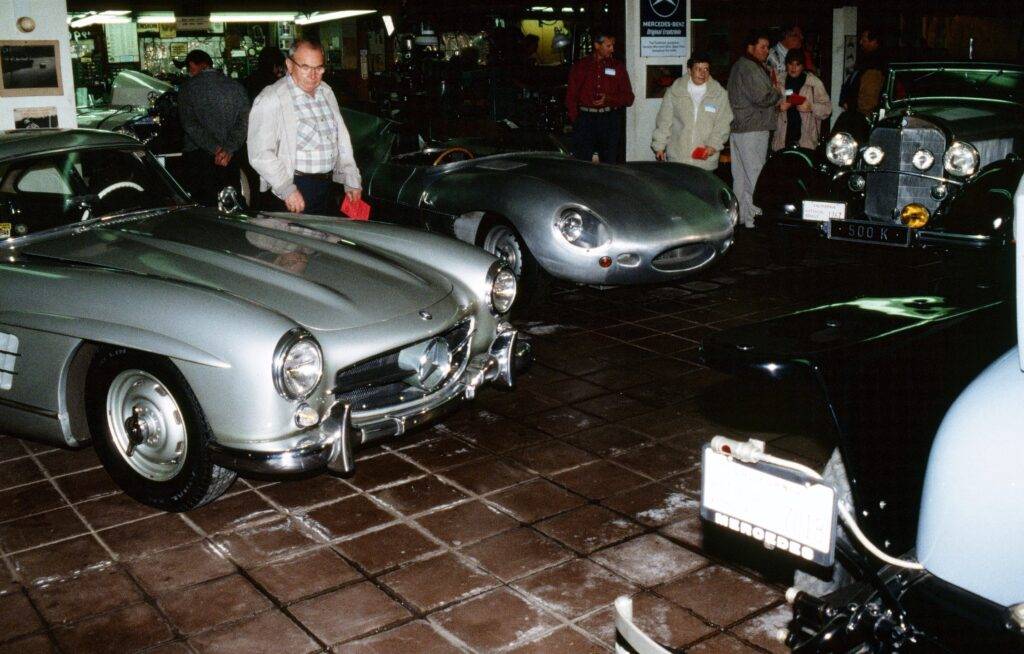
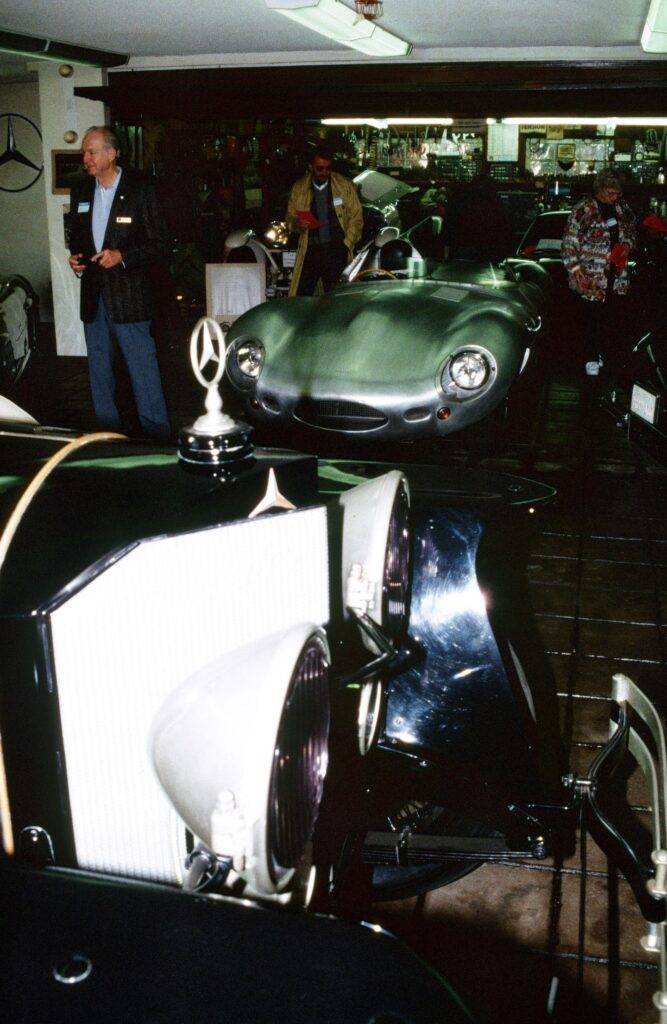
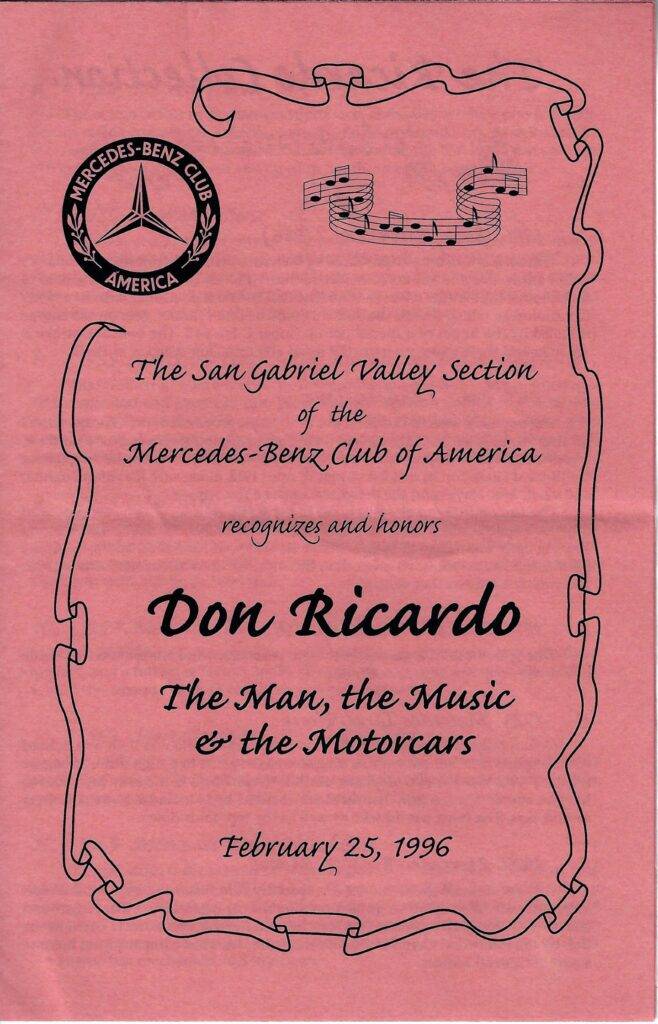
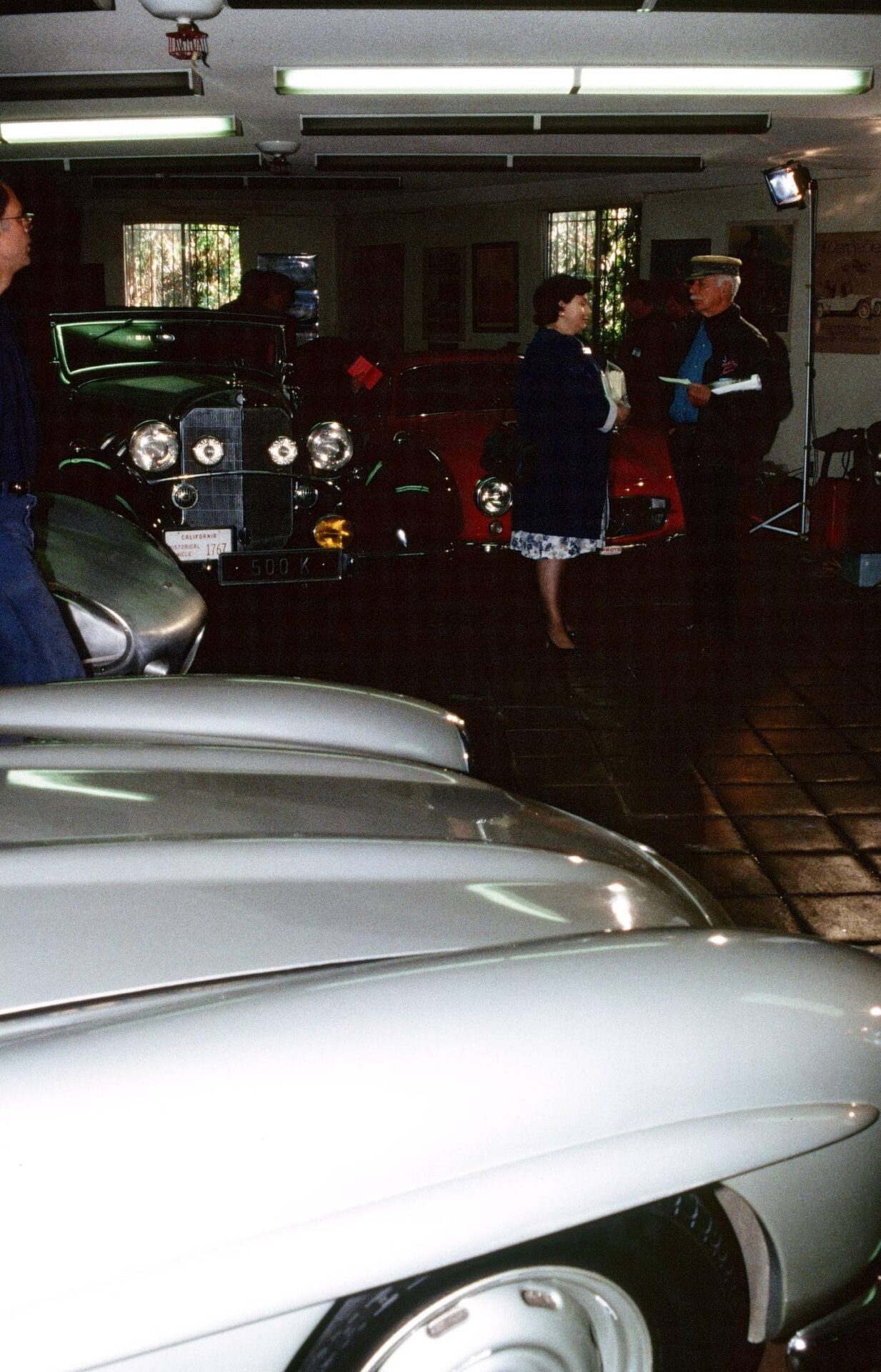
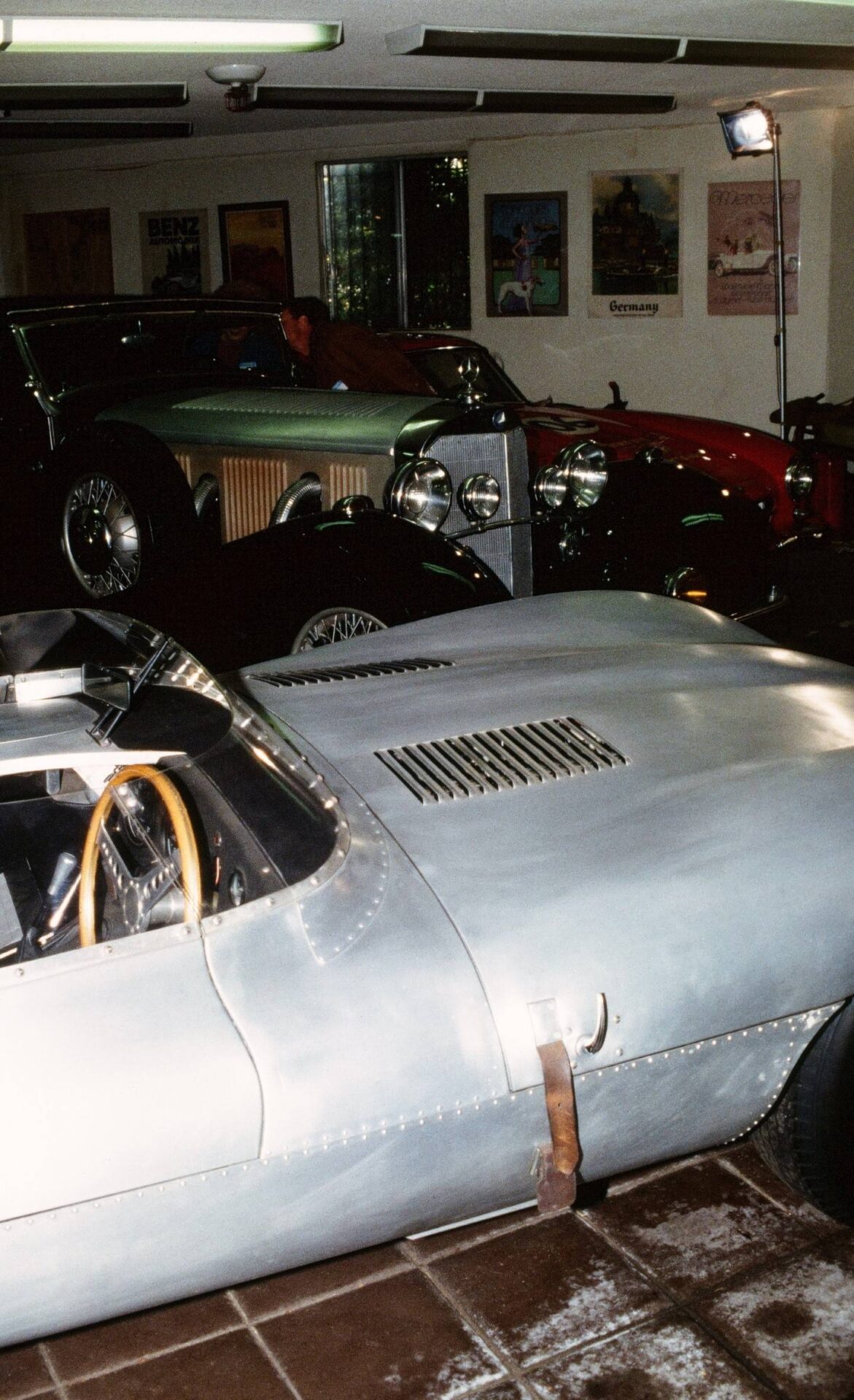
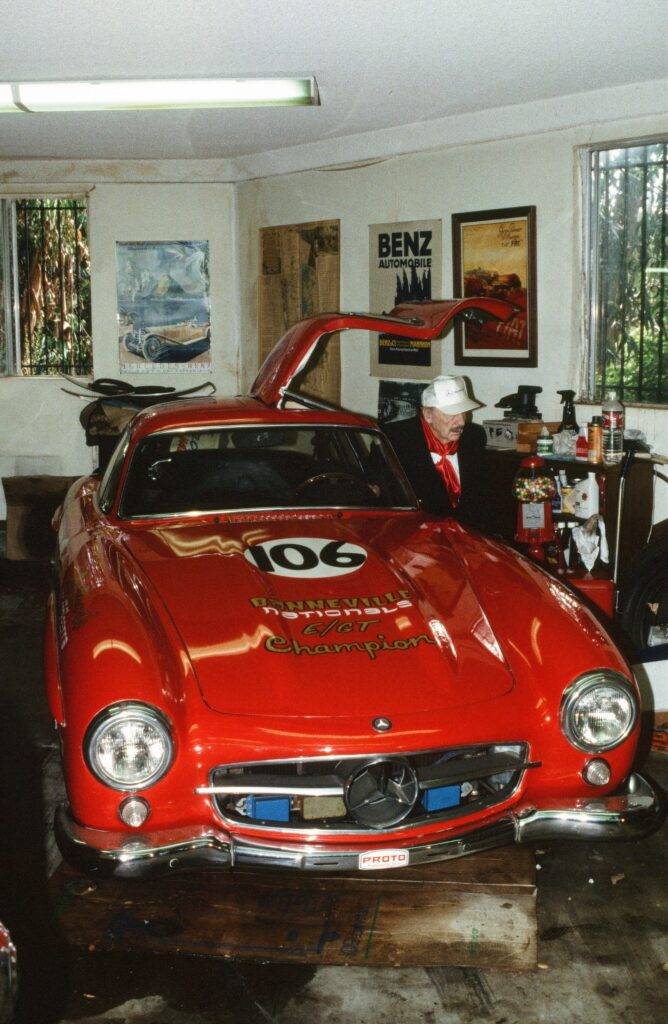
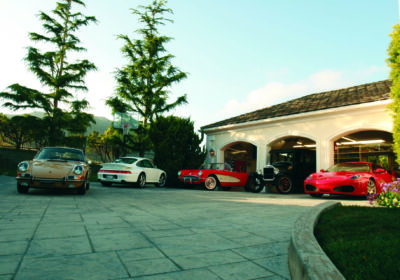
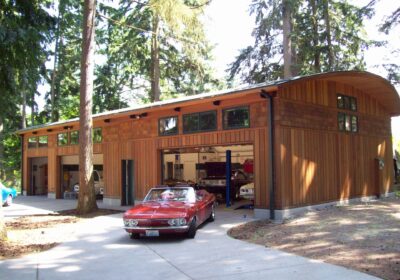
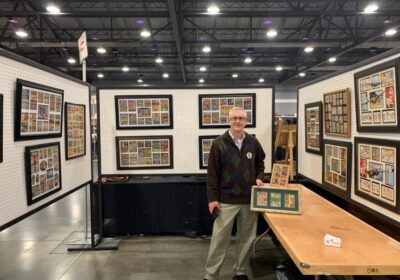
I lived not too far from Don Ricardo and attended many of those Thursday evening car nights. I also attended a few parties at his home as well. Don, I believe, was also a member of the Southern CA Region Horseless Carriage Club as was I, and he would attend some of the tours and other events with one of his vintage Mercedes.
Don was quite a story teller and I always enjoyed wandering through his garage, checking out his vehicles and looking at the memorabilia posted on the walls. He was also an accomplished letter press printer and had several printing presses that were set up in his home. It was great to read this article about Don. The last time I saw him was when I drove him to a past president’s potluck dinner that the Southern California Region of the Horseless Carriage Club used to put on as an annual event.
We surely miss Don, but his name still comes up from time to time.